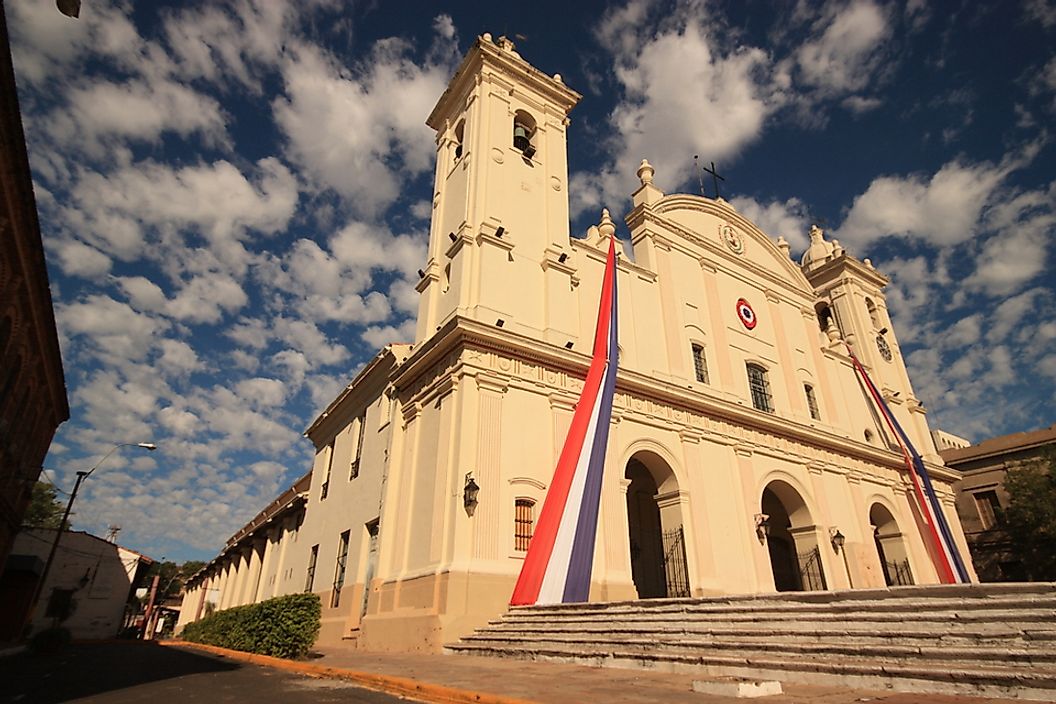The Major Religions Practiced in Paraguay

Located in the heart of South America, Paraguay is a landlocked country with an area of 406,752 square km and a population of 6,897,384 individuals. Christianity is the dominant religion in the country. According to the CIA World Factbook, 89.6% and 6.2% of Paraguay’s population are Roman Catholic and Evangelical Protestant Christians, respectively. Additionally, 1.1% of the population identify with other religious sects, and indigenous religions are practiced by 0.6%. Other religious faiths, like Islam, Buddhism, Judaism, as well as non-believers account for the remainder of Paraguay's population.
Catholicism in Paraguay
Roman Catholicism is the most popular religion in Paraguay and has shaped the nation's current culture. First introduced by European explorers and missionaries in the 16th century, there are now approximately 5.7 million Catholics living in Paraguay. The country's first diocese was established in 1547 and began to convert indigenous Indians to Catholicism in large numbers. Today, most of the nation's government officials are Catholic, and major Catholic festivals are celebrated as public holidays.
Protestantism in Paraguay
Protestantism is the second largest Christian denomination in Paraguay. Various Protestant groups that have a presence in the country include Lutherans, Mennonites, and Evangelicals.
Minority Religions in Paraguay
A small population of Muslims live in Paraguay, primarily in the country's Alto Parana department. Most Muslims trace their ancestral origins to Syria and Lebanon, although some originated from South Asia. There are also about 2,000 practicing Buddhists in the country, while some former Buddhists have converted to Christianity. Most of Paraguay's Buddhists have ancestral origins in Japan and were part of a Japanese agricultural settlement built in Paraguay. Jews in Paraguay mostly arrived during or after the First World War from Greece, Turkey, and Palestine. Today, approximately 1,000 Jews live in Paraguay, primarily in Asunción. There is also small Bahá’í population in Paraguay.
Religious Freedom and Tolerance in Paraguay
Paraguay has no official state religion. The constitution provides for freedom of religion, enabling citizens to freely select and practice a religion of their choice. Religious organizations that operate in the country have their independence guaranteed by the state.











